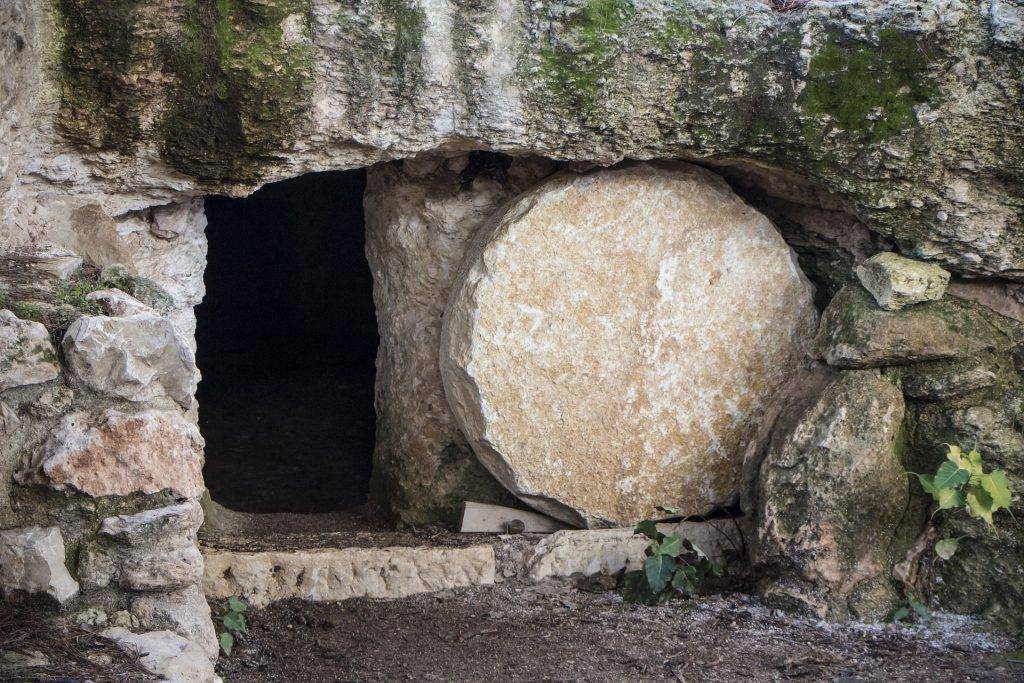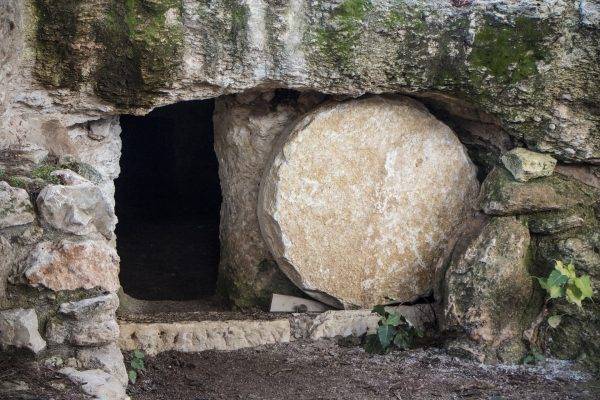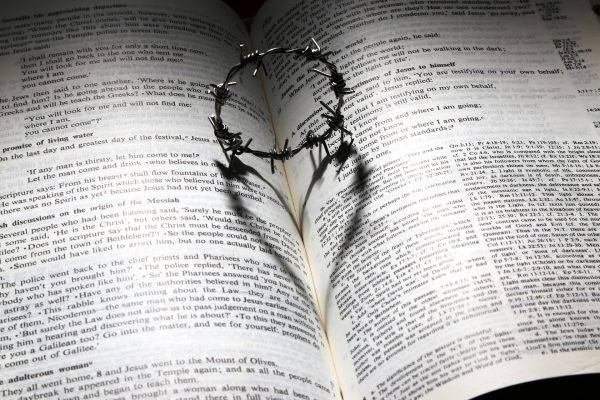Then Joseph of Arimathea bought a linen cloth, and taking down the body of Jesus, wrapped it in the linen cloth, and laid it in the tomb that had been hewn out of rock. He then rolled a stone against the door of the tomb. Mark 15.46
Tombs built in Jerusalem and Judea between 40 BC and AD 135 are distinctive. Many have been excavated, giving us a good idea of burial practices of the era. Burial chambers of the well-to-do were cut into rock. Beyond the small square opening, a large chamber was hewn out of Palestine’s soft limestone, containing one or more benches on which the bodies were laid for preparation. The bodies were then laid in long narrow chambers called kokhim, which were cut into the walls. These tombs were often sealed with large round stone slabs which rolled down over the entrance. Often the tombs were placed in gardens.
The Gospels give us a similar description of Jesus’ burial place. The tomb was that of the wealthy Joseph of Arimathea, which he had “cut out of the rock” and sealed with a large rolling stone (Mt. 27: 57-60). The garden in which the tomb was being constructed lay close to the place of the crucifixion (Jn. 19: 38-42). Even the picture of John bending down to look into the tomb through a low-cut entrance to discover that Jesus’ body was no longer there (JN. 20:5) is a detail that fits the well known pattern of first century Judean tombs.
Now spend time reflecting on this Sonnet by Malcolm Guite
Jesus is laid in the tomb
Here at the centre everything is still,
Before the stir and movement of grief
That bears its pain with rhythm and ritual,
Beautiful useless gestures of relief.
So they anoint the skin that cannot feel
And soothe his ruined flesh with tender care,
Kissing the wounds they know they cannot heal,
With incense scenting only empty air.
He blesses every love that weeps and grieves,
And makes our grief the pangs of new birth.
The love that’s poured in silence at old graves,
Renewing flowers, tending the bare earth,
Is never lost. In him all love is found
And soon with him, a seed in the rich ground.
– David Baldwin






